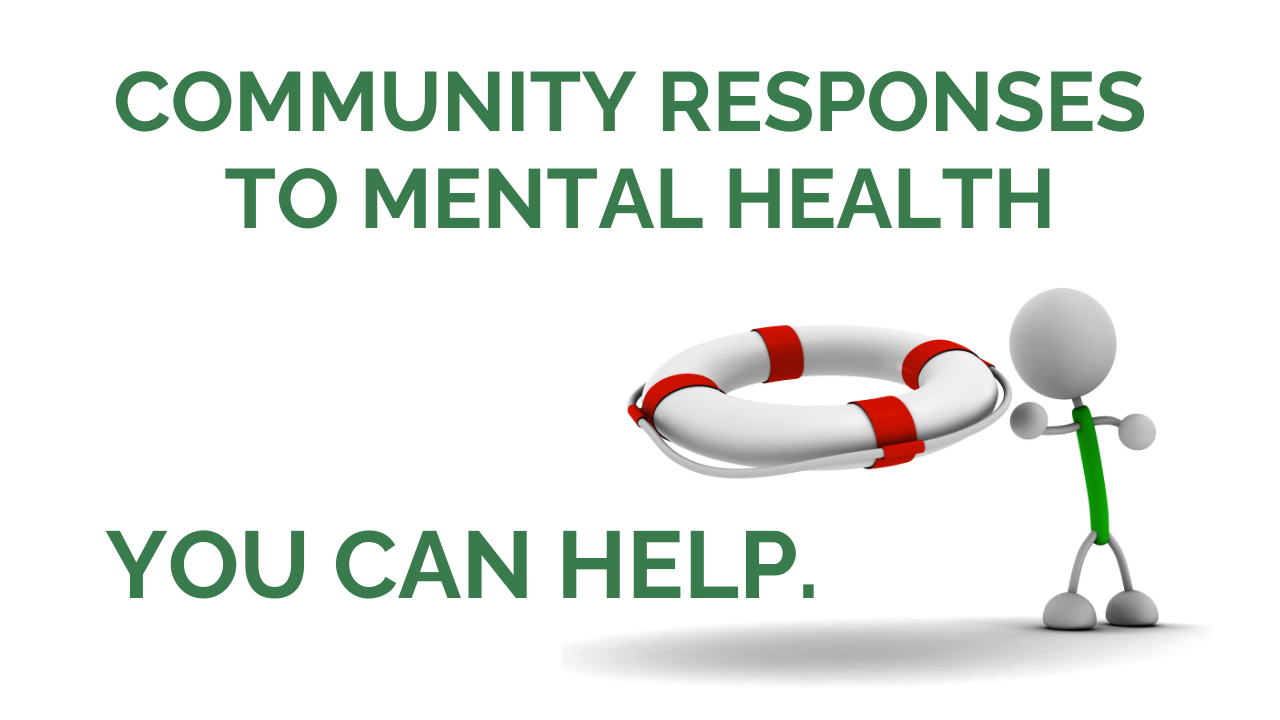
Living through the COVID-19 Pandemic taught us a lot about our well-being – physically, socially, and especially mentally and emotionally. With unending days of isolation and distance, lack of routines, consistent uncertainty and fear, as well as grief and loss, the topic of conversation quickly highlighted the emotional suffering experienced by many. It emphasized that not only was living through this experience overwhelming, but the experience also exacerbated or contributed to the development of mental and emotional issues for many individuals. As the conversation continues to remain on the forefront on all systems levels, with increased community conversations and funding surrounding mental health, I offer a review of some of the effective, evidence-based approaches to a community response to mental health.
Question Persuade Refer (QPR)
From the QPR Institute https://qprinstitute.com/
The QPR mission is to “reduce suicidal behaviors and save lives by providing innovative, practical and proven suicide prevention training.” The institute highlights that quality education regarding the signs of crisis can make a positive difference in the life of those around them, regardless of backgrounds. Additionally, they stress that professionals particularly in health care do not receive adequate training in helping those at risk of suicide within their programs and that patients are unaware of this, thus more training for professionals is necessary.
QPR offers a variety of trainings based on your profession and need and one can easily determine which course is most appropriate for them here: Which Course is Right for Me?
This course covers how to question, persuade and refer someone who may be suicidal, how to get help for yourself, how to learn about preventing suicide, the common causes of suicidal behavior and the warning signs of suicide as well as how to get help for someone in crisis. Gatekeepers (Surgeon General’s National Strategy for Suicide Prevention, 2001) are those who are able to recognize a crisis and the warning signs that someone may be contemplating suicide and this can include first response, ministers and priests, teachers, neighbors, friends, parents, doctors, nurses, office supervisors, and more. Organization Trainings and Professional Training offerings are provided as well.
The QPR Individual Online Gatekeeper Training is a one-time cost of $29.95, takes only 60 minutes, and provides an active certificate for 1 year. As noted on their website, “both CPR and QPR are part of systems designed to increase the chance of survival in the event of a crisis.” QPR holds the belief that at least one person per family unit should be trained in QPR given that suicides often occur in families where these emergency interventions may be most readily needed.
Mental Health First Aid (MHFA)
From the National Council for Mental Wellbeing https://www.mentalhealthfirstaid.org/
Giving you the skills to provide initial help and support to an individual who may be developing a substance use or mental health issue or is experiencing a crisis, Mental Health First Aid is a day-long course that teaches anyone how to identify, understand and respond to signs of mental health and substance use concerns or challenges, just as a person may take a CPR class to assist in someone having a heart attack.
Challenges discussed include depression and mood disorders, anxiety disorders, trauma, psychosis, and substance use disorders, and one learns how to apply the MHFA Action plan in a variety of situations depending on what the person is experiencing via role plays, scenarios, and activities.
The foundation for the training is both that of recovery and resiliency in that individuals experiencing mental health or substance use challenges can get better and use their individual and social strengths to stay well. By the end of the course, participants will be able to assess for risk of suicide or harm, listen non-judgmentally, give reassurance and information, encourage appropriate professional health, and encourage self-help and other support strategies to another person experiencing a mental health or substance use challenge.
Versions of MHFA include: Youth, Youth MHFA for Tribal Communities and Indigenous Peoples, teenMHFA (10th-12th graders to assist peers and get help from trusted adult), Adult, MHFA at Work (supporting co-workers), Rural Communities, Older Adults, Higher Education (students, professors, faculty and staff to assist in those settings), Military Veterans and Their Families, Fire/EMS, Public Safety, Corrections Professionals. The course can be done both virtually (2 hours of pre-work and 6 hour live virtual course) or in-person (8-hours with physical handbook provided) with a max of 30 participants in a course.
Community Resilience Model (CRM) Training and Workshops
From the Trauma Resource Institute https://www.traumaresourceinstitute.com/crm
The Community Resiliency Model (CRM)® is a skills-based, stabilization program, training both adults and children how to track their own nervous system to bring the body, mind, and spirit back into balance and to share this knowledge with friends, family, and others in their communities. This evidence-based model has growing substantial evidence in reducing anxiety, depression, somatic symptoms and hostility indicators (State of California, Mental Health Act, CRM Innovation Project, 2013).
Communities and local organizations who are trained teachers of the model can host Community Resiliency Model (CRM)® Workshops help create “trauma-informed” and “resiliency-informed” individuals and communities with a shared understanding of how chronic stress and trauma impact the nervous system and how using this skills-based approach, resiliency and balance can be restored. The workshops provide education on neuroscience, reactions from experiences such as poverty, racism and violence that can stress the nervous system, reducing human reactions to those types of experiences and highlighting that these common human reactions are biological rather than a mental weakness and encourage folks to integrate wellness skills daily into their lives. The iChill app is available for smartphones to promote this education as well.
Questions? Email Sara.Moscarelli@foundationhli.org
Posted in Mental Health Awareness
